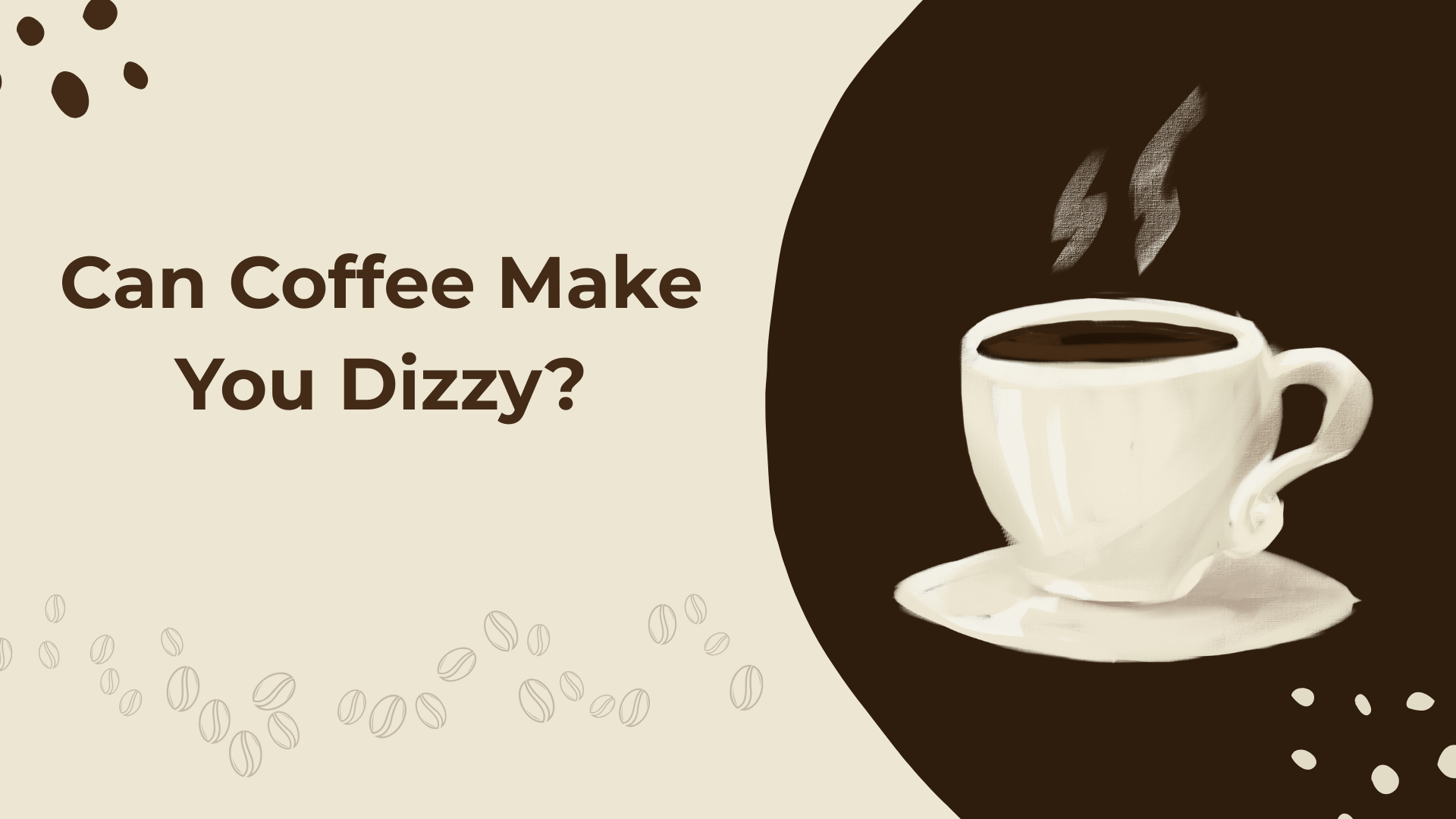Coffee—whether you love it for that morning pick-me-up or as an afternoon energy boost—is a daily ritual for millions of people around the world. But have you ever wondered if your coffee could actually make you feel dizzy? If so, you’re not alone! It’s a question that many coffee drinkers have, and the answer is yes, coffee can sometimes cause dizziness. But why does this happen? Let’s break it down in a way that’s easy to understand.
How Coffee Affects Your Body
Coffee contains caffeine, which is a natural stimulant. It works by stimulating your central nervous system, making you feel more awake and alert. Caffeine can increase your heart rate, boost your metabolism, and even raise your blood pressure temporarily. While most people enjoy these effects, they can sometimes cause some unwanted side effects like jitteriness, nausea, or dizziness, especially if you’re sensitive to caffeine.
Why Does Coffee Make Some People Dizzy?
There are a few reasons why coffee might leave you feeling lightheaded or dizzy:
1. Caffeine and Blood Pressure
One of the ways caffeine works in your body is by temporarily raising your blood pressure. This happens because caffeine blocks a hormone that helps your blood vessels stay dilated (widened). As a result, your blood vessels constrict, which can cause a rise in blood pressure. For some people, especially those who are sensitive to caffeine, this increase in blood pressure can lead to dizziness or lightheadedness. If you already have high blood pressure, drinking coffee might make you feel a little off.
2. Dehydration
Coffee is a diuretic, which means it can increase urine production. When you drink coffee, your body tends to lose more water through urination, and if you’re not careful about staying hydrated, you could become dehydrated. Dehydration can cause a drop in blood pressure, which might make you feel dizzy or lightheaded. This is why it’s important to balance your coffee consumption with plenty of water, especially if you’re sipping on multiple cups throughout the day.
3. Blood Sugar Levels
Drinking coffee on an empty stomach, or without food, can sometimes cause a dip in blood sugar levels. This happens because caffeine can stimulate the release of certain hormones, such as adrenaline, which may cause a temporary drop in blood sugar. Low blood sugar can leave you feeling weak, shaky, and dizzy. If you’re prone to dizziness after drinking coffee, try having a snack or meal before your cup of joe to prevent this from happening.
4. Caffeine Sensitivity
Not everyone has the same tolerance to caffeine. If you’re more sensitive to caffeine, you may experience stronger side effects, including dizziness. Sensitivity to caffeine can vary depending on factors like genetics, your caffeine intake habits, or certain medical conditions. If you find that coffee consistently makes you dizzy, it could be that your body is more sensitive to the effects of caffeine than others.
5. Overconsumption of Coffee
Sometimes, the issue isn’t caffeine sensitivity but simply drinking too much coffee. Having several cups of coffee throughout the day can lead to an overload of caffeine, which may trigger dizziness, nervousness, and even nausea. Most experts recommend limiting caffeine intake to about 400 milligrams per day (roughly 4 cups of coffee), but everyone’s tolerance level is different.
How to Avoid Feeling Dizzy After Drinking Coffee
If you’ve experienced dizziness after drinking coffee, don’t worry—it’s usually not a sign of anything serious. However, there are a few simple steps you can take to avoid feeling lightheaded in the future:
- Stay Hydrated: Since coffee is a diuretic, make sure to drink plenty of water throughout the day. Balance your coffee intake with water to prevent dehydration, which can contribute to dizziness.
- Don’t Drink Coffee on an Empty Stomach: Having coffee with food can help stabilize your blood sugar levels and prevent any sudden drops that might make you feel dizzy. Try pairing your coffee with a healthy breakfast or snack.
- Limit Caffeine Intake: If you’re drinking multiple cups of coffee a day, try cutting back to see if that helps with your dizziness. Stick to moderate caffeine intake—generally no more than 400 milligrams per day.
- Choose Low-Caffeine Options: If you’re sensitive to caffeine, try switching to lower-caffeine options like decaffeinated coffee, green tea, or herbal teas. These options can give you a gentler boost without the risk of dizziness.
- Consider Your Medical History: If you have high blood pressure, diabetes, or other health conditions that might be affected by caffeine, it’s worth discussing your coffee habits with your doctor.
When to See a Doctor
In most cases, dizziness caused by coffee is harmless and temporary. However, if you experience severe dizziness, fainting, or persistent symptoms after drinking coffee, it’s a good idea to consult with a healthcare professional. These symptoms could indicate an underlying health condition that needs attention.
Final Thoughts
So, can coffee make you dizzy? Yes, it can, but it’s usually a result of factors like caffeine sensitivity, dehydration, blood pressure changes, or low blood sugar. The good news is that with a few simple adjustments to your coffee routine—like staying hydrated, eating before your coffee, or cutting back on caffeine—you can enjoy your favorite brew without feeling lightheaded.
If you love your coffee but find that it makes you dizzy, don’t worry! It’s all about finding the right balance and understanding how your body reacts. With some tweaks to your habits, you can continue enjoying that perfect cup of coffee without the unwanted side effects!
